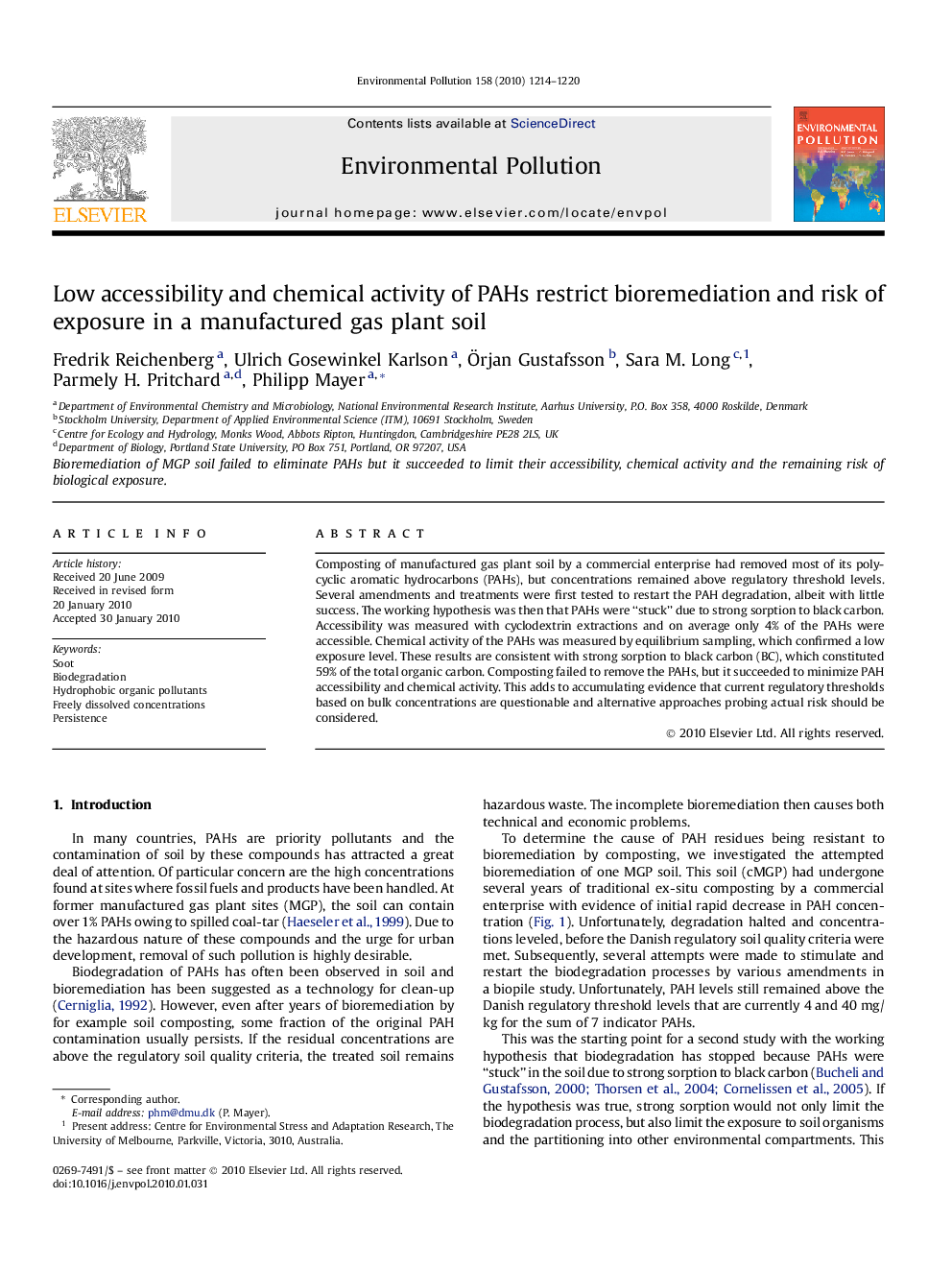| Article ID | Journal | Published Year | Pages | File Type |
|---|---|---|---|---|
| 4426094 | Environmental Pollution | 2010 | 7 Pages |
Composting of manufactured gas plant soil by a commercial enterprise had removed most of its polycyclic aromatic hydrocarbons (PAHs), but concentrations remained above regulatory threshold levels. Several amendments and treatments were first tested to restart the PAH degradation, albeit with little success. The working hypothesis was then that PAHs were “stuck” due to strong sorption to black carbon. Accessibility was measured with cyclodextrin extractions and on average only 4% of the PAHs were accessible. Chemical activity of the PAHs was measured by equilibrium sampling, which confirmed a low exposure level. These results are consistent with strong sorption to black carbon (BC), which constituted 59% of the total organic carbon. Composting failed to remove the PAHs, but it succeeded to minimize PAH accessibility and chemical activity. This adds to accumulating evidence that current regulatory thresholds based on bulk concentrations are questionable and alternative approaches probing actual risk should be considered.
